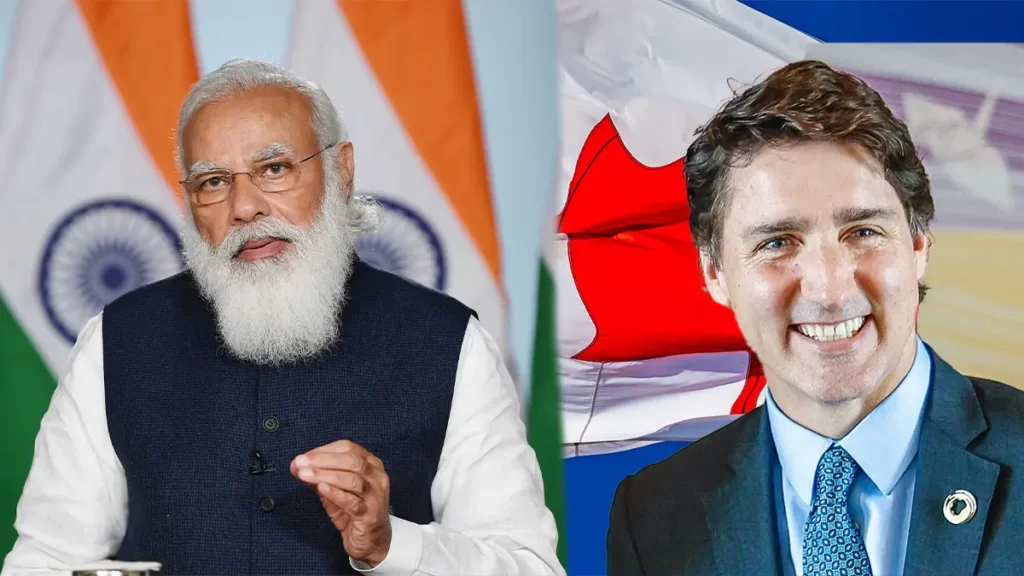Prime Minister Narendra Modi to lead the G20 virtual summit on November 22. The summit comes at a crucial time with the ongoing Israel-Hamas conflict and uncertain diplomatic ties with Canada. As the world watches, the Prime Minister takes the helm, navigating through these global challenges.
During the concluding moments of the G20 Summit in New Delhi on September 10, Prime Minister Narendra Modi declared that India is set to host a virtual summit. Scheduled before the conclusion of India’s presidency at the end of November, the G20 virtual summit will be led by PM Modi himself.
The external affairs ministry emphasised that the summit aims to reinforce the implementation of G20 decisions across national and international platforms, adding a digital dimension to global cooperation.
Canada PM Justin Trudeau confirms participation in G20 virtual summit
Notably, Canadian Prime Minister Justin Trudeau has officially announced his participation in the G20 virtual summit. This marks Trudeau’s first virtual meeting with Modi following the recent strain in relations between their two nations. Its significance lies in the unfolding dynamics as both leaders engage in this diplomatic encounter.
Tensions between India and Canada escalated when Hardeep Nijjar, a Canadian citizen linked to Khalistani separatism, was assassinated. Canada points fingers at India for the killing, a claim firmly denied by India. This rift has strained diplomatic ties between the two nations, complicating their relationship.
Israel and Hamas agree to Four-Day ceasefire and hostage exchange
While India is calling the world over the purposeful global summit, the scenario of war between Israel and Hamas sees a positive development.
Today, Qatar made a significant announcement, revealing its successful mediation in brokering a truce-for-hostages agreement between Israel and Hamas.
According to AP, this marks a crucial step towards a temporary ceasefire, providing a much-needed four-day halt in the fighting and ensuring the release of numerous hostages.
According to AP, Qatar’s foreign ministry mentioned that details of the truce would be disclosed tomorrow. The agreement involves the gradual release of about 50 Israeli hostages by Hamas in exchange for approximately 150 Palestinian prisoners from Israel, with a focus on women and children.
Russia and China to also join after missing the G20 Leaders’ Summit
Accepting India’s invitation, Russian President Vladimir Putin and Chinese Premier Li Qiang are set to attend the G20 virtual summit. Interestingly, both Putin and Chinese President Xi Jinping did not participate in the G20 Leaders’ Summit held in New Delhi on September 9 and 10 this year.
This absence raised eyebrows and marked a departure from their usual participation in such global gatherings. Their presence at the current event highlights a significant diplomatic shift.
India’s strategic goals for global diplomacy and sustainable development
India’s G20 Sherpa, Amitabh Kant, is optimistic about strong participation and sees this as a “unique opportunity” for Prime Minister Modi to interact with global leaders. Kant anticipates a dynamic engagement that could enhance India’s diplomatic standing on the international stage.
In his statement, Kant outlined the key goals of the G20 summit, emphasising the focus on addressing global governance gaps, reaffirming commitment to the Sustainable Development Goals (SDGs), and advancing towards a revitalised multilateral system. The aim is to contribute to the overall well-being of individuals on a global scale.
Economic Affairs Secretary Ajay Seth highlighted that the meeting will offer additional momentum and guidance, particularly in matters related to the finance track.
After this, the responsibility will shift to Brazil, set to take over the G20 presidency on December 1, leading the way for the global initiative.
While development remains the central focus, discussions may broaden to encompass various pressing issues. Foreign Secretary Vinay Kwatra refrains from speculating on the possibility of geopolitical tensions being raised, indicating a cautious approach to the unfolding deliberations.
The virtual summit allows leaders to deliberate on implementing the declarations and collaborating on pressing challenges, with the overarching goal of bridging gaps in global governance.

